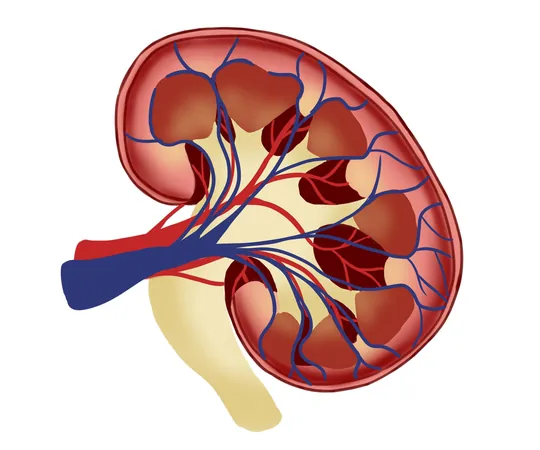
Groundbreaking Study Reveals Fasting Diet Could Revolutionize Kidney Health!
2024-10-31
Author: Wei
Introduction
Recent research has unveiled a potentially game-changing approach for patients suffering from chronic kidney disease, a condition characterized by the progressive loss of kidney function. One of the critical factors in the advancement of this disease is the damage to podocytes, essential cells that maintain the kidney's filtration barrier. Up until now, the medical community has struggled to find effective strategies to prevent this damage, leading to inevitable end-stage kidney disease for many patients.
The Study
Dr. Laura Perin, Co-Director at the GOFARR Laboratory within The Saban Research Institute of Children's Hospital Los Angeles, collaborating with Dr. Valter Longo from USC Longevity Institute, has spearheaded an innovative study that is drawing attention for its promising results. Their research, published in the prestigious journal Science Translational Medicine, focuses on a specialized dietary approach known as a low-salt, fasting-mimicking diet (LS-FMD).
Key Findings
In their study, animal models with chronic kidney disease were subjected to this unique diet, which aligns with dietary guidelines intended for human patients with similar conditions. The results were nothing short of extraordinary! After just six cycles of the LS-FMD, the researchers observed a significant slowing of kidney deterioration and even signs of restorative action within the kidney structures, specifically targeting podocyte reprogramming.
Results and Implications
Remarkably, the rodents that underwent dietary intervention exhibited a substantial drop in crucial health markers, including albumin-to-creatinine ratio (ACR) and blood urea nitrogen (BUN), within four to six weeks. They also displayed reduced glomerular and tubular injury compared to those that were not on the diet. Dr. Perin enthusiastically stated, "When we examined these animal models, we found that long-term kidney function and structure were improved, resembling those of healthy kidneys."
Human Trials
But could this approach extend beyond animal studies? Initial trials involving 13 human patients with chronic kidney disease suggest that the fasting-mimicking diet also holds protective benefits for human kidneys. Not only did participants experience a reduction in protein levels in their urine, a key indicator of kidney health, but improvements in endothelial function were also noted compared to those who did not follow the dietary intervention.
Future Directions
Dr. Longo commented on these findings, suggesting that the fasting-mimicking diet may play a vital role in regenerating kidney function and encouraging the proliferation of progenitor cells in humans. He advocates for further testing of this diet as a potential treatment for progressive kidney diseases.
Conclusion
As these researchers continue to pave the way for innovative dietary approaches in the realm of kidney health, patients are left hopeful that a simple change in diet could prove powerful enough to alter the course of chronic kidney disease forever. Will the fasting-mimicking diet be the breakthrough we’ve all been waiting for? Only time and further studies will tell!


 Brasil (PT)
Brasil (PT)
 Canada (EN)
Canada (EN)
 Chile (ES)
Chile (ES)
 España (ES)
España (ES)
 France (FR)
France (FR)
 Hong Kong (EN)
Hong Kong (EN)
 Italia (IT)
Italia (IT)
 日本 (JA)
日本 (JA)
 Magyarország (HU)
Magyarország (HU)
 Norge (NO)
Norge (NO)
 Polska (PL)
Polska (PL)
 Schweiz (DE)
Schweiz (DE)
 Singapore (EN)
Singapore (EN)
 Sverige (SV)
Sverige (SV)
 Suomi (FI)
Suomi (FI)
 Türkiye (TR)
Türkiye (TR)